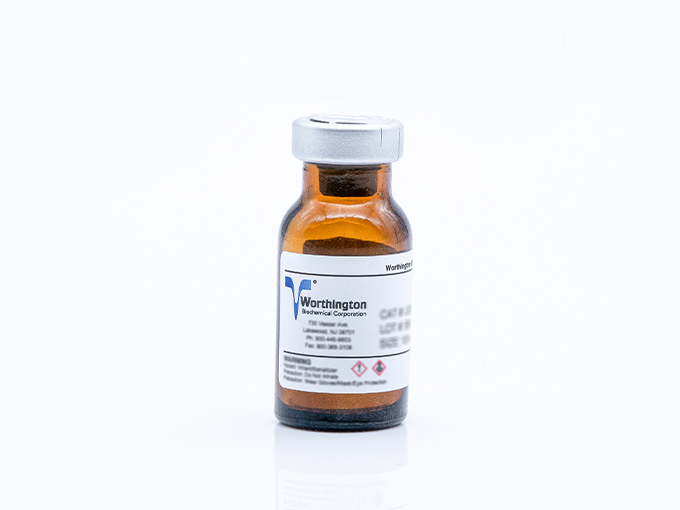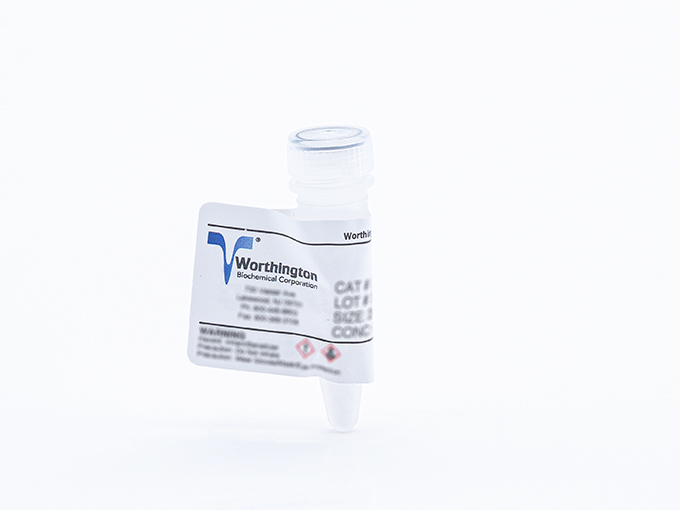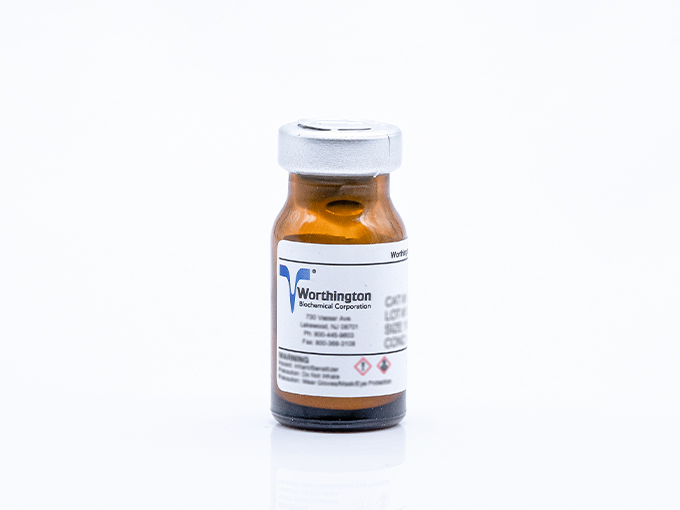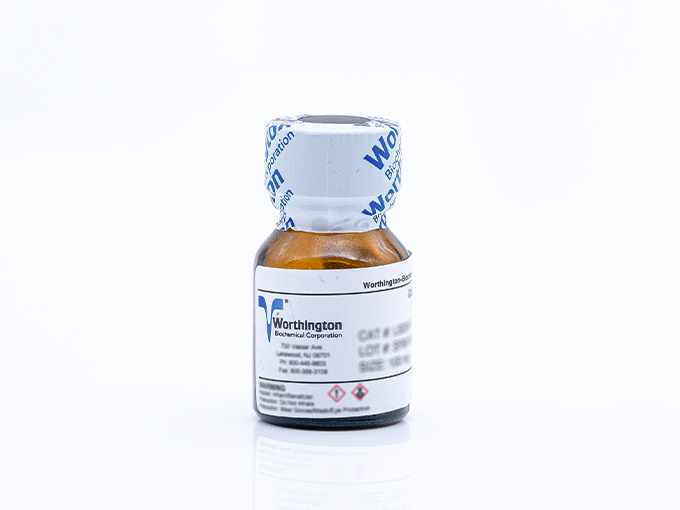Tissue Dissociation
Tissue Dissociation Enzymes for cell isolation
Tissue dissociation, primary cell isolation, as well as cell harvesting of cultured cells are routine processes in various research fields, such as cell biology, neuroscience, immunology, cancer, stem cell and regenerative medicine research. These techniques are essential for obtaining the specific cell types of interest from the full range of available tissues, enabling subsequent experiments and analyses.
Therefore, the primary objective of cell isolation procedures is to maximize the yield of functionally viable, dissociated cells with preserved cell surface antigens, while avoiding cell death and aggregation.
The Power of Enzymes
The enzymes used must selectively digest the distinct molecular structures present in the specific tissue, facilitating tissue dissociation while preserving the integrity of essential biomolecules, such as proteins and DNA, for further experimental analyses.
Choosing the right enzymes or enzyme mixes, as well as experimental conditions, is key for optimal results, given that the diverse composition of extracellular matrices in different tissues and developmental stages necessitates tailored approaches.
To receive valuable insights on optimizing your protocols, simply request your digital copy of Worthingtons’ Tissue Dissociation Guide from us. This comprehensive resource consolidates information on standard laboratory procedures, provides a logical experimental framework for developing cell isolation protocols, and includes numerous references specific to various tissues.
Find more information about tissue dissociation enzymes, such as Collagenases, Papain, Trypsin, Elastase, Hyaluronidase, as well as DNases and ready-to-use Tissue Dissociations Kits for specific tissues or optimization on the following pages.
Animal-Free (AF) Enzymes for Biopharmaceutical and Biomedical Research
Animal-free (AF) enzymes for research into biopharmaceutical and biomedical applications are crucial for mitigating the risks associated with animal-derived pathogens. A diverse range of enzymes, including key AF nucleases like DNases and RNase T1 & T2, Collagenases and other Proteases is part of our portfolio. These enzymes play pivotal roles in applications such as the isolation of primary and stem cells for autologous transplantation and artificial organ research. Ensuring the absence of animal-based components in these enzymes is essential to prevent potential contamination by mammalian pathogens.
AF enzymes are sourced from plant, fungal, bacterial, and other native or recombinant microbial origins. Their production involves the use of raw materials, media components, chemicals, buffers, and dedicated equipment that are entirely free of animal-derived materials.
The Bioprocess Grade Enzymes are specialized enzymes tailored to meet the stringent requirements of pharmaceutical and biomedical bioprocessing applications.
-
Collagenase Type A, Animal Free - CLSAFA (1g)
Cat.-Nr: LS004154
Prepared cultures grown in medium completely devoid of animal based components and designed for bioprocessing applications where introduction of... Read More
-
Collagenase Type A, Animal Free, Filtered - CLSAFAS (50mg)
Cat.-Nr: LS004118
Animal Free (AF) Types AFA, AFB, and AFC collagenases are derived from cultures grown in medium completely devoid of animal-based components and are... Read More
-
Collagenase Type B, Animal Free - CLSAFB (1g)
Cat.-Nr: LS004147
Prepared from cultures grown in medium completely devoid of animal based components and designed for bioprocessing applications where introduction of... Read More
-
Collagenase Type B, Animal Free, Filtered - CLSAFBS (50mg)
Cat.-Nr: LS004124
Animal Free (AF) Types AFA, AFB, and AFC collagenases are derived from cultures grown in medium completely devoid of animal-based components and are... Read More
-
Collagenase Type C, Animal Free, Filtered - CLSAFCS (50mg)
Cat.-Nr: LS004130
Animal Free (AF) Types AFA, AFB, and AFC collagenases are derived from cultures grown in medium completely devoid of animal-based components and are... Read More
-
STEMxyme® 1 Collagenase/Neutral Protease (Dispase) - STZ1 (50mg)
Cat.-Nr: LS004106
A specialized combination of Animal Origin-Free Clostridium histolyticum collagenase (Code: CLSAFB) and animal origin free Bacillus polymyxa neutral... Read More
-
STEMxyme® 2 Collagenase/Neutral Protease (Dispase) - STZ2 (50mg)
Cat.-Nr: LS004112
A specialized combination of Animal Origin-Free Clostridium histolyticum collagenase (Code: CLSAFB) and animal origin free Bacillus polymyxa neutral... Read More
-
Collagenase Type A, Animal Free - CLSAFA (100mg)
Cat.-Nr: LS004152
Prepared cultures grown in medium completely devoid of animal based components and designed for bioprocessing applications where introduction of... Read More
-
Collagenase Type A, Animal Free - CLSAFA (5g)
Cat.-Nr: LS004156
Prepared cultures grown in medium completely devoid of animal based components and designed for bioprocessing applications where introduction of... Read More
-
Collagenase Type A, Animal Free, Filtered - CLSAFAS (5x50mg)
Cat.-Nr: LS004119
Collagenase, Animal Origin-Free (Code: CLSAFA) which is filtered through a 0.22 micron membrane and lyophilized in vials.
-
Collagenase Type B, Animal Free - CLSAFB (100mg)
Cat.-Nr: LS004145
Prepared from cultures grown in medium completely devoid of animal based components and designed for bioprocessing applications where introduction of... Read More
-
Collagenase Type B, Animal Free - CLSAFB (5g)
Cat.-Nr: LS004148
Prepared from cultures grown in medium completely devoid of animal based components and designed for bioprocessing applications where introduction of... Read More
-
Collagenase Type B, Animal Free, Filtered - CLSAFBS (5x50mg)
Cat.-Nr: LS004125
Collagenase, Animal Origin Free (Code: CLSAFB) which is filtered through a 0.22 micron membrane and lyophilized in vials.
-
Collagenase Type C, Animal Free, Filtered - CLSAFCS (5x50mg)
Cat.-Nr: LS004131
Collagenase Animal Origin Free (Code: CLSAFC) which is filtered through a 0.22 micron membrane and lyophilized in vials.
-
Collagenase, Purified, Animal Free - CLSAFP (10ku)
Cat.-Nr: LS005292
Prepared from cultures grown in medium completely devoid of animal based components and designed for bioprocessing applications where introduction of... Read More
-
Collagenase, Purified, Animal Free - CLSAFP (4ku)
Cat.-Nr: LS005290
Prepared from cultures grown in medium completely devoid of animal based components and designed for bioprocessing applications where introduction of... Read More
-
STEMxyme® 1 Collagenase/Neutral Protease (Dispase) - STZ1 (5x50mg)
Cat.-Nr: LS004107
A specialized combination of Animal Origin-Free Clostridium histolyticum collagenase (Code: CLSAFB) and animal origin free Bacillus polymyxa neutral... Read More
-
STEMxyme® 2 Collagenase/Neutral Protease (Dispase) - STZ2 (5x50mg)
Cat.-Nr: LS004113
STEMxyme® 2 Collagenase/Neutral Protease (Dispase®) is a specialized combination of Animal Origin-Free Clostridium histolyticum collagenase (Code:... Read More




